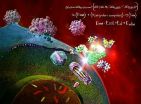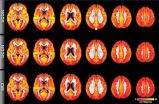(Press-News.org) Washington, DC—A researcher who found that testosterone raised the risk of prostate tumors and exacerbated the effects of carcinogenic chemical exposure in rats is urging caution in prescribing testosterone therapy to men who have not been diagnosed with hypogonadism, according to a new study published in the Endocrine Society's journal Endocrinology.
Testosterone use has soared in the last decade among older men seeking to boost energy and feel younger. One study published in The Journal of Clinical Endocrinology & Metabolism found that the number of American men who started testosterone therapy has nearly quadrupled since 2000, despite concerns about potential cardiovascular risks.
The Endocrine Society's Clinical Practice Guidelines on testosterone therapy in adult men recommend prescribing testosterone only to men who have unequivocally low levels of the hormone and decreased libido, erectile dysfunction or other symptoms of hypogonadism, a condition that results from low testosterone.
"This research demonstrates that testosterone on its own is a weak carcinogen in male rats," said the study's author, Maarten C. Bosland, DVSc, PhD, of the University of Illinois at Chicago. "When it is combined with cancer-causing chemicals, testosterone creates a hospitable environment for tumors to develop. If these same findings hold true in humans, there is serious cause for public health concern."
Two dose-response studies examined the incidence of prostate cancer in rats. The rats were given testosterone through slow-release implant devices. Before the rats were dosed with testosterone, some of the animals were given injections of the carcinogenic chemical N-nitroso-N-methylurea (MNU). These rats were compared to a control group that received MNU but had empty slow-release devices implanted.
Among the rats that received testosterone without the carcinogenic chemical, 10 to 18 percent developed prostate carcinomas. Testosterone treatment alone did not induce specific tumors at other sites, but compared with control rats, it caused a significant increase in the number of rats with malignant tumors at any site. When rats were exposed to testosterone and the carcinogen, the treatment caused prostate cancer in 50 to 71 percent of the rats. Even when the hormone dose was too low to elevate testosterone levels in the bloodstream, half of the rats developed prostate tumors. Animals that were exposed to the carcinogenic chemical but not testosterone did not develop prostate cancer.
"Since the growth of testosterone therapy is relatively recent and prostate cancer is a slow-moving disease, there are at present no data to determine if testosterone could heighten the risk of prostate cancer in humans," Bosland said. "While human studies are conducted, it would be prudent to limit testosterone prescriptions to men with symptomatic clinical hypogonadism and avoid testosterone use by men for non-medical purposes, including addressing normal signs of aging."
The study, "Testosterone Treatment is a Potent Tumor Promoter for the Rat Prostate," was published online, ahead of print.
INFORMATION:
Founded in 1916, the Endocrine Society is the world's oldest, largest and most active organization devoted to research on hormones and the clinical practice of endocrinology. Today, the Endocrine Society's membership consists of over 17,000 scientists, physicians, educators, nurses and students in more than 100 countries. Society members represent all basic, applied and clinical interests in endocrinology. The Endocrine Society is based in Washington, DC. To learn more about the Society and the field of endocrinology, visit our site at http://www.endocrine.org. Follow us on Twitter at https://twitter.com/#!/EndoMedia.
Testosterone promotes prostate cancer in rats
Animal findings could signal public health risks for men using testosterone therapy
2014-10-07
ELSE PRESS RELEASES FROM THIS DATE:
Printing in the hobby room: Paper-thin and touch-sensitive displays on various materials
2014-10-07
Until now, if you want to print a greeting card for a loved one, you can use colorful graphics, fancy typefaces or special paper to enhance it. But what if you could integrate paper-thin displays into the cards, which could be printed at home and which would be able to depict self-created symbols or even react to touch? Those only some of the options computer scientists in Saarbrücken can offer.
They developed an approach that in the future will enable laypeople to print displays in any desired shape on various materials and therefore could change everyday life completely.
For ...
World's first child born after uterus transplantation
2014-10-07
In a ground-breaking research project at the University of Gothenburg, seven Swedish women have had embryos reintroduced after receiving wombs from living donors. Now the first transplanted woman has delivered a baby – a healthy and normally developed boy. The world-unique birth was acknowledged in The Lancet on 5 October.
The uterus transplantation research project at the University of Gothenburg started in 1999 and has been evaluated in over 40 scientific articles. The goal of the Gothenburg project is to enable women who were born without a womb or who have lost ...
Fundamentals of physics confirmed
2014-10-07
To explore any possible limits of the two theories, they have been experimentally verified many times already and both have passed all the tests so far. Hence, scientists look for deviations in experiments with increasing precision or under extreme conditions.
For this purpose, Nörtershäuser's team has now accelerated ions to velocities near the speed of light and illuminated them with a laser.
The results, which are presented in two new publications, confirm the time dilation predicted for high velocities in the theory of relativity with an accuracy that ...
New study finds nearly 6 million more dengue cases in India than official annual tally
2014-10-07
Deerfield, Ill. (October 8, 2014) — The annual number of dengue fever cases in India is 282 times higher than officially reported, and the disease inflicts an economic burden on the country of at least US$1.11 billion each year in medical and other expenses, according to a new study published online today in the American Journal of Tropical Medicine & Hygiene.
The study, led by researchers at Brandeis University's Schneider Institute for Health Policy in Waltham, Massachusetts, the INCLEN Trust International in New Delhi, and the Indian Council of Medical Research's ...
Researchers turn computers into powerful allies in the fight against AIDS
2014-10-07
The battle against AIDS cannot be won in the laboratory alone. To fight the potentially deadly virus that 34 million people are suffering from we need help from computers. Now research fron University of Southern Denmark turns computers into powerful allies in the battle.
Effective treatment of HIV-virus is a race against time: Many of the drugs that have been potent killers of HIV-virus, have today lost their power, because the virus has become resistant to them. As a result science must constantly develop new drugs that can attack the virus in new ways.
Now researchers ...
Easy recipe to make bone and cartilage
2014-10-07
Scientists at The University of Texas Health Science Center at Houston (UTHealth), Monash University and RIKEN Centre for Developmental Biology have used a combination of small molecules to generate mouse cells that can form bone and cartilage. This new method is easily scalable, and hence is a promising approach for the repair of human bone and cartilage defects. The research has just been published at http://dev.biologists.org/ in the scientific journal Development.
Current strategies to regenerate bone and cartilage use adult stem cells that are committed to forming ...
A new pathway discovered regulating autoimmune diseases
2014-10-07
Boston, MA – The main function of the immune system is to protect against diseases and infections. For unknown reasons our immune system attacks healthy cells, tissues and organs in a process called autoimmunity, which can result in diseases such as multiple sclerosis, type 1 diabetes, lupus or rheumatoid arthritis. There are currently no existing cures for these diseases.
Now, in a new study by researchers at Brigham and Women's Hospital (BWH), a potential treatment maybe on the horizon. Researchers found that NAD+, a natural molecule found in living cells, plants ...
New genetic variants associated with coffee drinking
2014-10-07
Boston, MA — A new, large-scale study has identified six new genetic variants associated with habitual coffee drinking. The genome-wide meta-analysis, led by Harvard School of Public Health and Brigham and Women's Hospital researchers, helps explain why a given amount of coffee or caffeine has different effects on different people and provides a genetic basis for future research exploring the links between coffee and health.
"Coffee and caffeine have been linked to beneficial and adverse health effects. Our findings may allow us to identify subgroups of people most ...
MRI technique detects evidence of cognitive decline before symptoms appear
2014-10-07
OAK BROOK, Ill. – A magnetic resonance imaging (MRI) technique can detect signs of cognitive decline in the brain even before symptoms appear, according to a new study published online in the journal Radiology. The technique has the potential to serve as a biomarker in very early diagnosis of preclinical dementia.
The World Health Organization estimates that dementia affects more than 35 million people worldwide, a number expected to more than double by 2030. Problems in the brain related to dementia, such as reduced blood flow, might be present for years but are ...
Rural hospitals replicate experiences of big city stroke care
2014-10-07
A new model for stroke care is being studied in rural Alberta to reduce inequities in health across communities. This model, presented at the Canadian Stroke Congress, shows how hospitals in rural areas can mimic the type of care that's often only available in larger centres.
In geographically diverse Canada, stroke care can seem like tale of two cities – or more like a city and a small town. The ideal is stroke unit care, where a multidisciplinary staff of doctors, nurses and therapists collaborate on treatment and the road to recovery. In Alberta, that type of ...
LAST 30 PRESS RELEASES:
Highly stable self-rectifying memristor arrays: Enabling reliable neuromorphic computing via multi-state regulation
Composite superionic electrolytes for pressure-less solid-state batteries achieved by continuously perpendicularly aligned 2D pathways
Exploring why some people may prefer alcohol over other rewards
How expectations about artificial sweeteners may affect their taste
Ultrasound AI receives FDA De Novo clearance for delivery date AI technology
Amino acid residue-driven nanoparticle targeting of protein cavities beyond size complementarity
New AI algorithm enables scientific monitoring of "blue tears"
Insufficient sleep among US adolescents across behavioral risk groups
Long COVID and recovery among US adults
Trends in poverty and birth outcomes in the US
Heterogeneity of treatment effects of GLP-1 RAs for weight loss in adults
Within-person association between daily screen use and sleep in youth
Low-dose lithium for mild cognitive impairment
Catheter ablation and oral anticoagulation for secondary stroke prevention in atrial fibrillation
A new theory of brain development
Pilot clinical trial suggests low dose lithium may slow verbal memory decline
Bioprinting muscle that knows how to align its cells just as in the human body
A hair-thin fiber can read the chemistry of a single drop of body fluid
SwRI develops magnetostrictive probe for safer, more cost-effective storage tank inspections
National report supports measurement innovation to aid commercial fusion energy and enable new plasma technologies
Mount Sinai, Uniformed Services University join forces to predict and prevent diseases before they start
Science of fitting in: Do best friends or popular peers shape teen behavior?
USF study: Gag grouper are overfished in the Gulf; this new tool could help
New study from Jeonbuk National University finds current climate pledges may miss Paris targets
Theoretical principles of band structure manipulation in strongly correlated insulators with spin and charge perturbations
A CNIC study shows that the heart can be protected during chemotherapy without reducing antitumor efficacy
Mayo Clinic study finds single dose of non-prescribed Adderall raises blood pressure and heart rate in healthy young adults
Engineered immune cells show promise against brain metastases in preclinical study
Improved EV battery technology will outmatch degradation from climate change
AI cancer tools risk “shortcut learning” rather than detecting true biology
[Press-News.org] Testosterone promotes prostate cancer in ratsAnimal findings could signal public health risks for men using testosterone therapy



